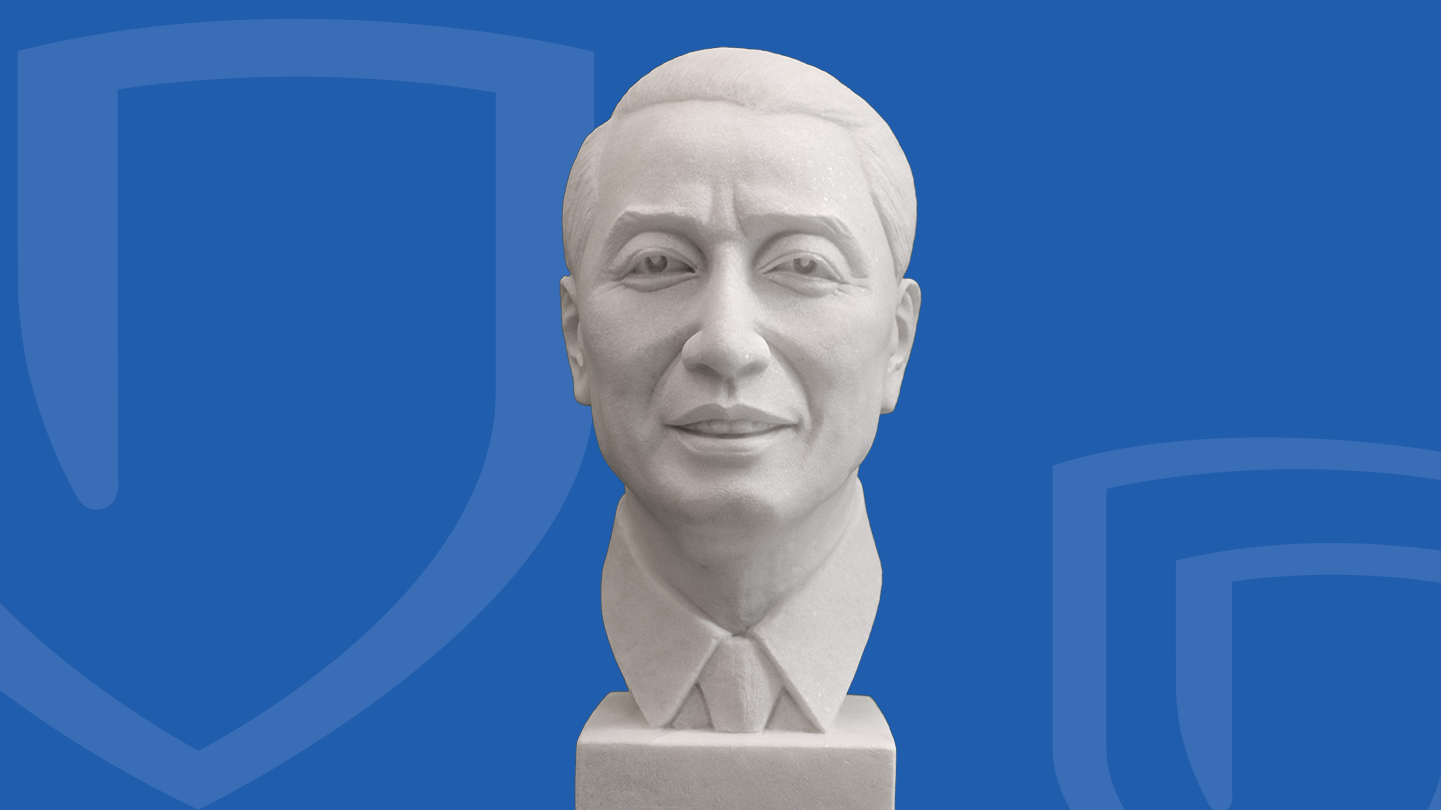
 汉白玉雕像【何鴻超】; White Marble Statue [Ho Hung Chiu]
汉白玉雕像【何鴻超】; White Marble Statue [Ho Hung Chiu]
 该雕塑由广州泰和肿瘤医院院长钱朝南教授捐赠
该雕塑由广州泰和肿瘤医院院长钱朝南教授捐赠
 详细介绍 / Introduction
详细介绍 / Introduction
何鴻超 (1916 - 2005),香港著名肿瘤学家,国际鼻咽癌研究先驱。在鼻咽癌的流行病学、临床分期及放射治疗研究方面有突出贡献。1950 年起,历任香港放射学及肿瘤研究院院长、香港大学医科外科部肿瘤放射治疗科教授。 何教授当年率先发现进食咸鱼可能诱发鼻咽癌,揭开了“广东瘤”的部分疑团,再经潜心钻研和临床实证,获国际公认为鼻咽癌的权威。昔日的棘手恶疾,现今的治愈率已高达八成。他根据肿瘤的大小、转移淋巴结的数目、是否有远处转移迹象,为鼻咽癌建立一套分期系统,方便医疗人员准确掌握病情,制订合理的治疗方案,显著提升了患者的生存率。现时国际抗癌联盟 (UICC) 采用的鼻咽癌分期系统,大体是基于何教授提出的鼻咽癌分期系统而形成。该雕塑由广州泰和肿瘤医院院长钱朝南教授捐赠。
Ho Hung Chiu (1916-2005) was a renowned oncologist in Hong Kong and a pioneering researcher in international nasopharyngeal carcinoma studies. He made outstanding contributions to the epidemiology, clinical staging, and radiotherapy of nasopharyngeal carcinoma. Since 1950, he served as the president of the Hong Kong Radiology and Oncology Research Institute, and as a professor in the Department of Surgical Oncology and Radiation Therapy at the University of Hong Kong. Professor Ho Hung Chiu was the first to discover that consuming salted fish might induce nasopharyngeal carcinoma, which helped to dispel some of the doubts surrounding the "Canton tumor." Through further research and clinical verification, he became internationally recognized as an expert on nasopharyngeal carcinoma. What was once a difficult and perilous disease, now has a curative rate of up to 80%. He developed a staging system for nasopharyngeal carcinoma that considers tumor size, the number of metastatic lymph nodes, and the presence of distant metastasis. This system enables medical professionals to accurately assess the condition and develop a suitable treatment plan, which has significantly improved patient survival rates. The currently used staging system for nasopharyngeal carcinoma proposed by Union for International Cancer Control (UICC) is based on the previous Prof. Ho’s staging system. This sculpture was donated by Prof. Qian Chao-Nan, who is the president of Guangzhou Concord Cancer Center.

